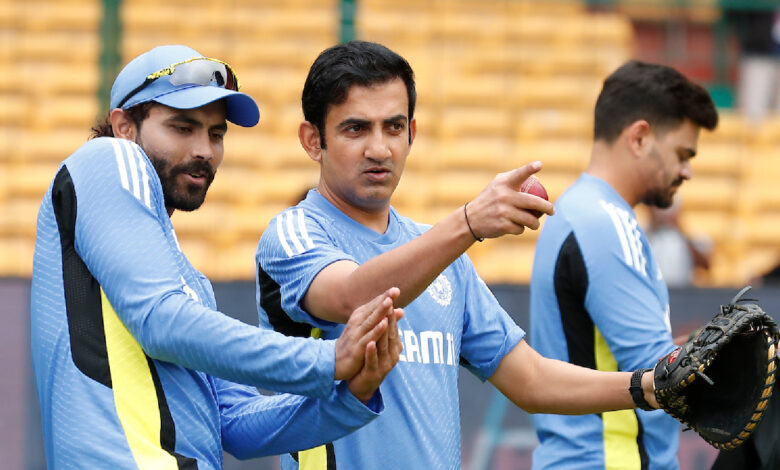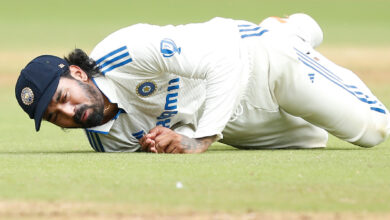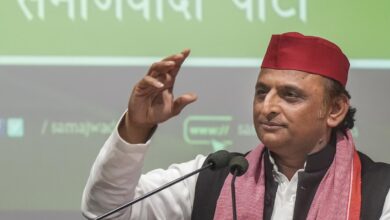India head coach Gautam Gambhir says T20 cricket has had an adverse impact on ability of batsmen to defend | Cricket News

As he left the press conference room, past journalists wishing him Diwali and shaking his hands, Gautam Gambhir stroked his chin and said in a tone of lament: “Baal safed ho gaya yaar.” He then turned around and added:“ Aur safed ho jayega, bhai.” It’s been just two months since he took over as head coach of the world’s most popular cricket team but results haven’t gone the team’s way.
Gambhir packs the same intensity as the fiery opening batsman of yore into the press conference room. He barely smiles though he did once, when asked about the angry young man image of the past. Nor does he lighten the mood with a wisecracks like his predecessor Rahul Dravid. Gambhir the coach is the extension of Gambhir the batsman, though he says both preoccupations are a world apart.
“When you are playing, it’s a completely different thing to when you are coaching. You can only control certain things,” he said
“It’s important to give people freedom. And sometimes when things aren’t going your way, it’s always better to have your arm around the shoulder of a player,” he adds. At the nets, you see him busily shuttling from one enclosure to the other. He doesn’t engage, at least on the field, in long chats like Dravid. Or like Shastri, who watched his players with hawkish eyes, often standing beside the crease, like an umpire. When you sift his quotes, you won’t find any headline worthy quotes, but you discover a certain gravity and frankness in his words.
For instance, he readily admitted the adverse impact of white-ball cricket on defensive strokes in Test cricket. “It completely comes down to T20 cricket, that’s about it… The more T20 cricket is played, the lesser people will defend,” he said.

He elaborated: “Sometimes you’re so used to muscling the ball that you end up forgetting the soft hands and all that stuff which probably used to happen 8 or 10 years back. I think it’s just that we need to keep defending better. I think that is important, especially on a turning track because if you’ve got confidence in your defence a lot of things can be sorted and that is something which we need to keep getting better at,” he added.
At his peak, he was one of the most competent players of spin bowling, be it defending, manoeuvring singles, or unsettling them with big shots. But with more emphasis on power game and range hitting, the old-world virtues of nullifying spin have taken a back seat. Defending is an afterthought, a jailbreak measure when you can’t attack. It manifests in hard hands. But he asserted the importance of defence, like a true sentinel of the aughts, when T20 ethos had not proliferated into Test cricket.
“How much value does he end up giving to defending a ball? That is something which is important, especially on a turning track. I’ve always believed that the best players and the most successful players in this format, or be it any format, always had a solid defence,” he said.
India already has a designated batting coach in Abhishek Nayar. But the presence of a coach who has prospered in all formats—match-saving knocks abroad, match-defining efforts in T20 and World Cup finals — would benefit them. He can connect to this generation, because he has either played with some or coached them, or coached against them. He understands the cricketing values of his times, filters only what he wants.
Adaptability key in Test cricket
He specifies on the need to play Test cricket like cricket. “I think I’ve said that Test cricket needs to be played like Test cricket. I think we should be able to adapt. We should be a side that can get 400 on a day if we need to get the result and we should be able to bat for two days as well,” he stressed.
He produced an example too. “Suppose for example you’re batting at 9.30 in the morning, your technique gets tested differently when you bat on the second day or on the fifth day. It tests you every day, your technique gets tested differently every day,” he explained.
His first two months have been stormy — with series defeats to Sri Lanka (ODIs) and New Zealand (Tests). But he admitted he knew the challenges that arrived with the hot seat. “I never expected an easy run for me because international cricket is never easy. But all we can do is be honest to ourselves and keep working hard. When things are not going great, there are always those doubts that creep up, especially looking at the Australian tour,” he said. There is the pragmatist in him.
He also reminded the players of the responsibility that came with wearing an India jersey. “I think we know very well that we represent 140 crore Indians so it’s another opportunity because very few people get this opportunity and honour to represent the country in Test cricket.” But more often than not with the microphone, he was the grisly opener he once was. And he would hope the same virtues would forge a successful coaching stint.
He wouldn’t mind the shades of grey.







